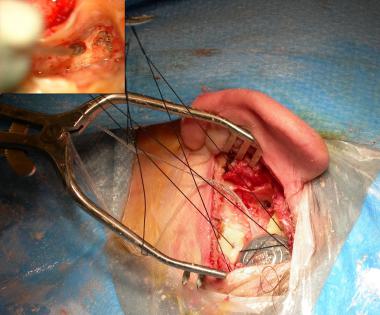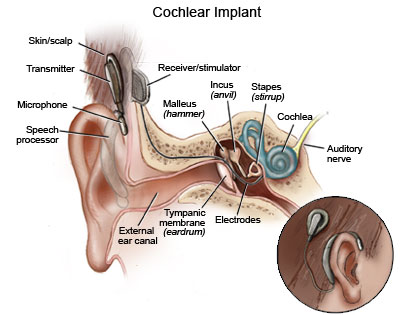Cochlear Implant Surgery
What results can be expected from a cochlear implant?
As with any medical procedure, the results of implantation cannot be predicted prior to surgery and recipients may experience a wide range of outcomes. For individuals who lost their hearing after learning to speak, the perception of speech and sounds after implantation may initially seem quite different from what they remember. After using the cochlear implant for several months or more, these individuals often report that they perceive speech to be more natural or closer to their memory of familiar sounds.
While many factors affect outcomes for both children and adults, typically, the younger a child who was born deaf is implanted the greater the benefit achieved in the areas of speech perception and speech and language development. A predictive factor for implant performance for adults who are deaf is the length of time between the onset of deafness and implantation; those with the shortest duration of deafness tend to experience better outcomes.
What role do audiologists and speech-language pathologists perform in the implant process?
Audiologists are involved in many of the components of the cochlear implant program, including determining the candidacy of an individual for implantation, as well as activating and programming of the speech processor after surgery. Both audiologists and speech-language pathologists provide aural rehabilitation services to implant recipients to facilitate their ability to detect and understand speech with the cochlear implant. Aural rehabilitation services may include processes to enhance communication, auditory training and speechreading, training on the use and care of the implant, and support of the needs of the recipient and family.


